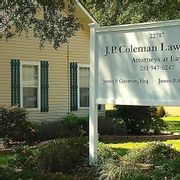What Are the Differences Between Revocable & Irrevocable Trusts?

Trusts are a common element of estate planning. A living trust is a legal document created during your lifetime that outlines your wishes, similar to a will. It places your assets, such as bank accounts, investments, real estate, and other valuable items, into the trust, which is managed by a third party known as a trustee. Living trusts come in two forms: revocable and irrevocable. When meeting with an attorney, it's important to understand the differences between these two.
Revocable Trusts
A revocable trust creates a separate legal entity that holds the assets you've determined for it. Those assets are then managed by a trustee, and the creator can work with an attorney to modify the document at any time. They can add or remove beneficiaries, change the stipulations around asset management, and even dissolve the trust altogether. Once the owner passes away, the trust becomes irrevocable.

Revocable trusts tend to be more common because of their flexibility. However, they do have some drawbacks. If the owner is sued, a judge can order that the assets be liquidated to satisfy creditors. Additionally, when the owner dies, the assets within it are subject to state and federal estate taxes.
Irrevocable Trusts
Once established with an attorney, an irrevocable trust cannot be altered or terminated. Exceptions happen, but very rarely. All beneficiaries must agree on changes, or a court order must allow them.
The other main difference between irrevocable and revocable is how the assets are considered. In an irrevocable trust, the assets move out of the owner's estate. Therefore, they are shielded from creditors and are exempt from estate and capital gains taxes. If the owner sets up a charitable irrevocable trust, they can also take an income tax deduction for their contributions.
If you're looking to set up a revocable or irrevocable trust for your beneficiaries, turn to the legal experts at J.P. Coleman Law LLC, Attorneys at Law. They provide legal counsel and representation to clients in Robertsdale, AL, and throughout Baldwin County. The experienced lawyers handle wills and trusts, estate planning, family and criminal law matters, civil litigation, and mediation. They are dedicated to ensuring their clients receive the best recommendations and tactics with clear communication. Call (251) 947-6247 to schedule a free initial consultation or visit their website to learn more about the firm.
About the Business
Have a question? Ask the experts!
Send your question

